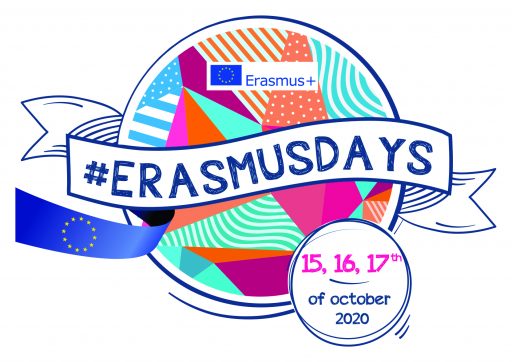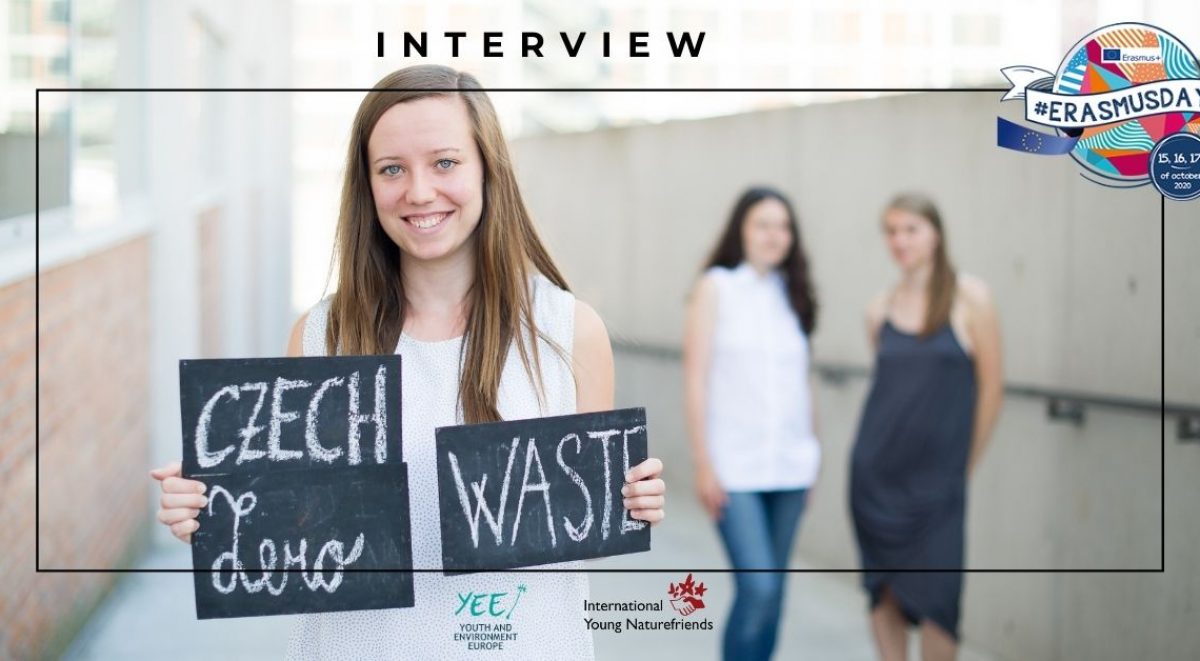
As part of Erasmus Days we teamed up with our friends from YEE to introduce Sustainable businesses in the Czech Republic. This is the Interview with Helena one of the three founders of the Blog/Podcast Czech Zero Waste.
Could you do a quick introduction. Who are you and what do you do?
My name is Helena. Currently, I study environmental studies in Brno at Masaryk University at the faculty of social sciences. Next to that, I also do lots of activities connected to sustainability, the environment and Zero waste.
Five years ago me and two of my friends started a blog, Czech Zero Waste, where we wanted to write about how to live zero waste life in the Czech Republic. At that time there was next to no information about zero waste here. There was only one zero waste shop in the entire country and the whole idea was kind of new here.
This was the beginning. Now we are doing talks, workshops, we published a book about zero waste in the Czech Republic and we have a podcast.
Do you remember when you got into the sustainable lifestyle?
I do not think there was an exact moment. It all started in my first year of university but the mindset was there before.
When I was a child, I lived in a small town in a house with lots of animals. We had cats, dogs, rabbits, hens and a big garden. I also spent a lot of time at the scouts. You could say I grew up outside.
At that time I was not told about environmental problems, but I think this laid the foundation.
When I was deciding what to study, I first wanted to study languages, Czech and Russian, but then when I had to apply, it did not feel right.
I started to look for other options and found environmental studies. And I was like:” Hmm, this sounds interesting and the classes look fun“. So I applied.
When I started to study, I actively started to learn more about the concept of sustainability.
When did you decide that other people have to know about this, that you have to publish your experience?
When I started to go to the classes I was thinking:“ This is really happening. That is horrible I need to do something about it!“
But at university, we were only taught about the problems, not the solutions. So in this first month of my studies, I was spending a lot of time thinking about how I as a person can make a difference.
Then one day My friend called:“ Hey, do you want to start living zero waste and write about it?“, and I was like:“ Yeah. that could be a thing I could do.”
She is a journalist and when she moved to Denmark, she started to explore zero waste there and wanted to know how the situation looked like back in the Czech Republic. She started to google and found out that there is no information in Czech about this. So she decided that someone should get this information to the Czech people and close this knowledge gap. That was when I decided to try out the zero waste lifestyle and write about it.
We began to live a zero waste life in October 2015 and started to write about it in January of 2016.
At that time it was a new world for me because you did not hear that much about environmental problems in the media.
In the beginning, the idea was to try to not produce any waste which would end up in the trash bin, but later on, we realized that this is not the only information we want to give people because waste production is a problem but it‘s not the number one problem our planet is facing.
Nowadays I try to talk about climate change and other environmental problems and try to use zero waste as a narrative.
We need to do something about the waste. Waste is not only the one which ends up in the trash bin. The waste is also the air pollution, CO2 emissions, the way we treat people who produce our products.
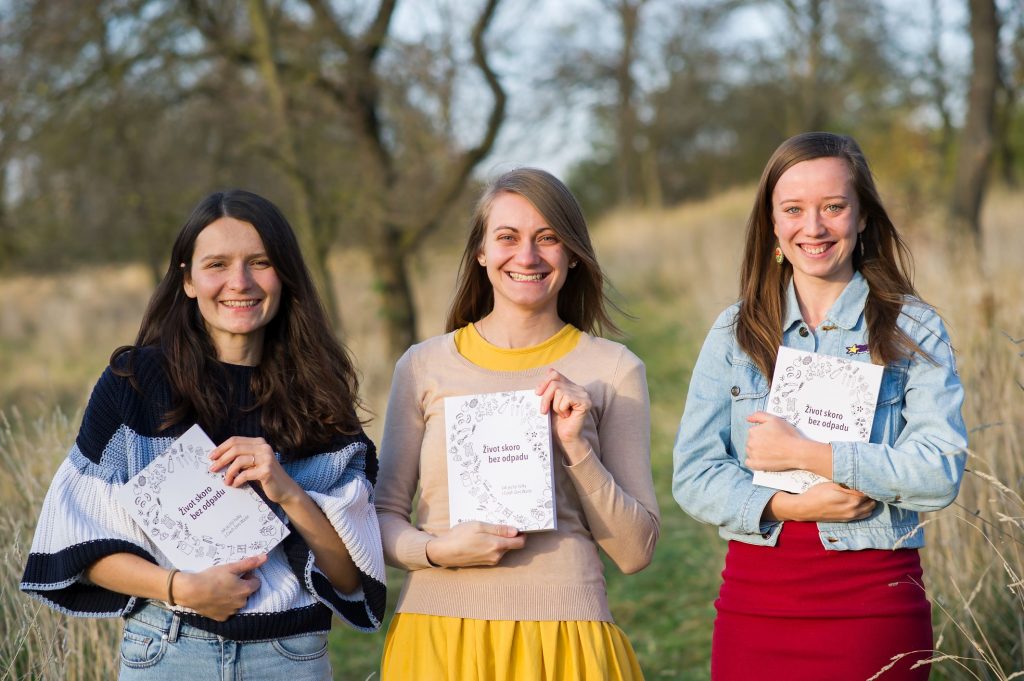
Do you think that anything changed from the time you started to now? e.g. thought the regular climate strikes that started to take off at the start of last year? Are environmental problems more addressed in the Czech Republic now?
Definitely.
When I started my studies, which was about the same time we started Czech Zero Waste, friends and family questioned what I learned at university. They said things like:“ What are you learning?”
Their idea of environmentalism was, “Those crazy hippies who go to the forest and chain themselves to the trees. Those are the people who cause that we do not have the highway because they block it for some frogs or something.” That was the general idea about environmentalists.
If you could hear about environmental problems in the media, it was something about waste and recycling. Sometimes about floods or heat waves however it was not connected to climate change.
But since Greta and Fridays for Future and others like „We are the Limits“, lots of people got involved. The media also talks about climate change now.
It really has changed.
I also see it when I work with young people.
I started to learn about these problems at university and I had no idea about them when I was in high school or elementary school. Now when I visit schools the students sometimes know more about some environmental problems that I do, I am a university student.
I think one of the reasons why so many young people know about this is because they get introduced to the topic via social media. Facebook, Instagram, YouTube. Everyone is online and many Influencers talk about it.
But if we just go back and crunch the numbers it does not look so great.
When we started the blog in 2015 every person in the Czech Republic produced 315kg of municipal waste per year, now it is about 350kg.
People talk about it, people think about it, there are a lot of zero waste shops but you just don‘t see it in the numbers.
I think it is similar to climate change.
You also launched a Zero Waste Smartphone app? Why did you decide to do that?
Growing up in a Christian family we honoured the Lent season 40 days before eastern, which tells you to renounce something e.g. not to eat meat.
As a child, the challenges we did would be like, don‘t spend that much time watching television and instead spend it helping your mum. The idea was to use this time to do something good. Then we made it into a zero waste challenge every year in the Lenten season.
The husband of one of my colleagues works at IT and thought:“ We can make it into a mobile app.” He programmed it and we prepared the challenges so people can do it easily every time of the year.
With the app we want to make people aware of the problem and give solutions.
If someone decides they want to start to reduce their waste or start to do something good for the environment they have no idea where to start most of the time.
First of all, the challenges motivate you, second they are an inspiration on what you can do. And again it is not just about waste.
There is a task like do not use your car today, or cook a vegan meal. Together with the tasks there is information about why it is useful for the environment. So when we write „cook a vegan meal today“ we explain that meat has a huge carbon footprint.
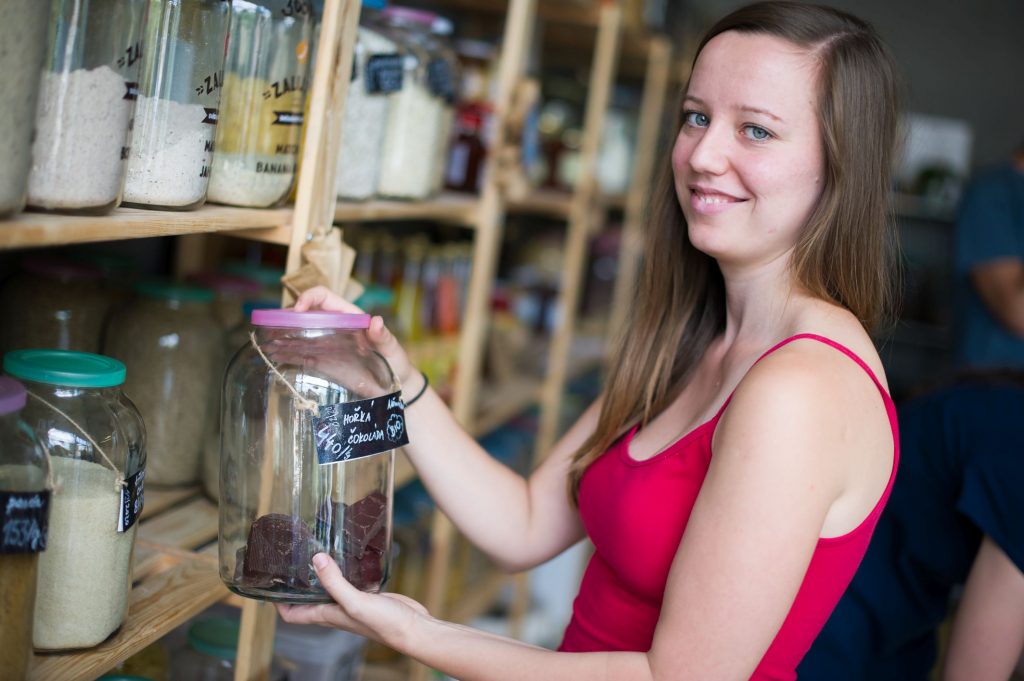
When did you decide now it is time to write a book about this? And did you research it or was it more your combined knowledge in one but? I have to say it is a not just a small booklet it is a thick book with over 300 pages.
Yes, it is really long and it was not supposed to be way in the beginning. When we started the blog we never thought that we would write a book one day.
About four years ago a publishing house offered us to write a book because they saw that their audience was interested in it.We started to think about it. Since there were some books about it already and we did not want to put out just another that has the same information This would have been a waste of time and energy so we thought about it really hard. A lot of our fans who read other books about zero waste before liked them but thought it was lacking specific information about the Czech Republic.
So we started to write it for a Czech audience.
When we began to write we just wanted to write about zero waste. How to reduce the waste that goes into your trash bin.
But then we started to change our philosophy. You know talking about climate change and other stuff. So we started to involve it in the book.
Every time we finished some chapters, we gave it to each other for comments. And every time it was like: “You could add this and this, this could be interesting too.”
We spent a lot of time researching and the book turned out very different from our blog or our social media content.
Because of all of the research it felt more like I was writing my thesis.
We did not only want it to be a lifestyle book like: “I am waking up in the morning and making a cup of coffee and then I do that and that…” That is the reason why it is so long and why it took us three years to write it.
Therefore everything we could find about zero waste is included.
When we published it, I was scared that one month later I will think: “Oh, I should have put this into the book, it definitely should be there.“But there has been no big thing that I thought should be in the book and soon it will be one year of the release.
I think in general everything a person needs to know about living zero waste and sustainable lifestyle in the Czech Republic is included.
If you have a look at your website you see that the last blog post form a while ago and you focus on podcasts since November last year. Why did you decide to do this step?
I think with all of our activities we just use the opportunities we get. It was like that with the book and app and it was the same as the podcast.
We were talking about doing podcasts earlier but we did not follow through. Then we had a meeting with someone who works at a company focusing on influencers and they offered us their studio for free, so we accepted.
I think it was about grabbing the opportunity. Podcast are really big nowadays and
we reach an entirely new audience and can go in-depth into the topics.
Do you already know what the next big thing of Czech Zero Waste is going to be?
That‘s a good question.
But I can not answer it because I have no idea :D. Let’s see what life brings us.
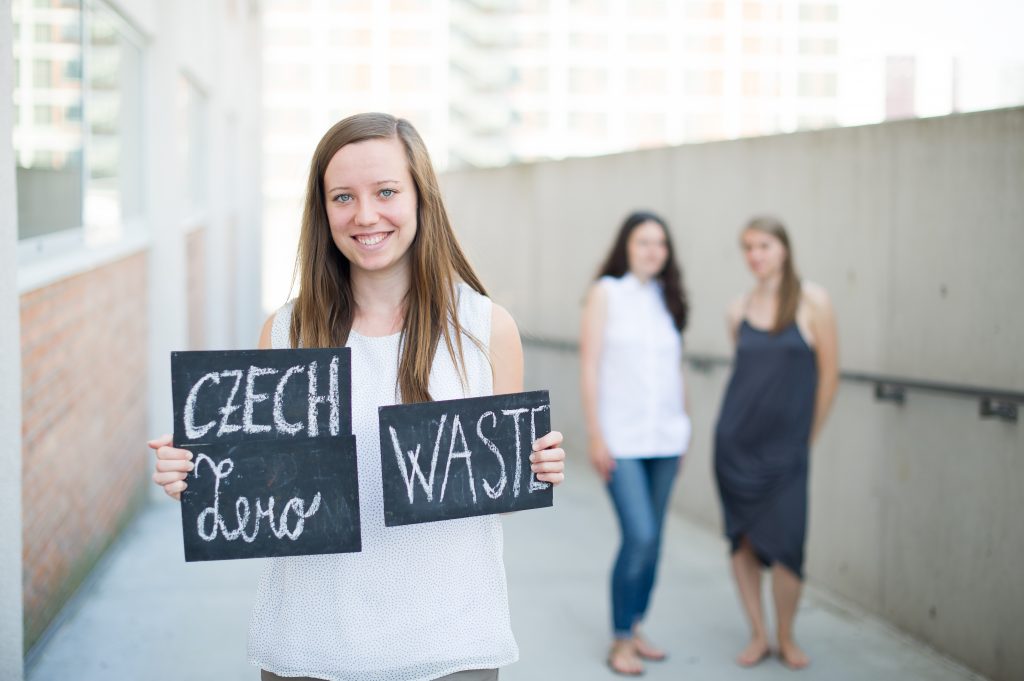
If there is a newcomer to Zero Waste, what would you suggest would be the three easiest ways to start?
Three steps on how to start to live zero waste right now are general and do not work for everyone because everyone is a different person in a different living situation.
Nonetheless here are some recommendations.
First of all, it is never easy to start with something new. What we recommend is to first look into the trash bin or your daily activities and think about the waste it produces.
It is important to know your life and know how your waste or carbon footprint looks like.
So, look inside your trash bin and choose one or two things that you do not want to have there and start thinking about how to prevent it next time.
Do it one step at a time, do it slowly and try to make it enjoyable and interesting.
When you start to do something in the beginning you are motivated because it is new and interesting.
To make it sustainable in the long term it is important to think about why you are doing this and what it brings to your life, the environment and other people. Otherwise you will not keep doing it for long.
To summarize:
1st Get to know your waste
2nd Chose one of them
3rd Make it one step a time and try to find purpose and make it fun
Since we almost only focus on an English speaking audience, I wanted to know if you could suggest where people can find English information about zero waste?
There is a lot of information about zero waste in English already, that is the reason why we started doing it in Czech.
There is something called “Zero Waste Network Europe” or you can have a look at the website of “Zero Waste Week”. There you should find information about Zero Waste in your country.
You can also find a lot about zero waste on social media if you search for #zerowaste.
But there are big differences in the content. Since zero waste became a trend there is much content that is just shallow. So be aware of that.
I think it is good to find someone who talks about other stuff than just avoiding plastic and also focuses on other environmental problems.
And maybe someday, our app will be in English.
Anything more to add?
I think that everyone can make a change, everyone can do something to combat climate change.
Don‘t be intimidated by the zero in zero waste.
It is impossible to get to the zero but the important thing is to do something.
Thank you for your time!
You are welcome!
Frank Hoppe
This article is part of Erasmus Days event.
